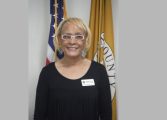Aqua’s proposal was commonly thought to be off the table. The decision created no small amount of controversy among Fluvanna citizens and constituted several legal concerns for County Attorney Fred Payne, who spent much of Nov. 20’s meeting debating some supervisors over the implications of their vote.
So on Wednesday, it was not too surprising that Ullenbruch urged the Board to reconsider. What was noteworthy was that Chesser and Kenney seemed inclined to agree. Ullenbruch described how, after the Aqua decision, he spoke at length with incoming Supervisor Tony O’Brien. “I can assure you,” he told the other supervisors, “that if the incoming Board is allowed to make that [water plan] decision, that we will make a decision on water… I think it will be very short into the winter before the incoming Board will make a decision.”
Chesser’s response shed some light on why certain supervisors were interested in reconsidering. “We made a motion,” he stated, “and unfortunately our motion was not clear. We were not able to identify the version we applied to… We can’t move any further with this Aqua proposal… The motion we made is void because it is incomplete.” So many different iterations of the Aqua contract exist that the Board’s Nov. 20 motion to accept was too general.
What the supervisors actually did Nov. 20 by approving the contract with changes, said Payne, was to extend to Aqua a counter offer. And by the end of the two-hour discussion, supervisors voted unanimously to withdraw that counter offer.
But that doesn’t mean that interest in Aqua is over. Some supervisors voted to withdraw the counter offer with an explicit intent of submitting a clearer counter offer in the near future. And debate over the specifics of that offer constituted much of Wednesday’s meeting.
After the last meeting between Aqua Virginia and the county on Oct. 2, Kenney and Chesser felt that everything had been resolved between the two parties except for the matter of jurisdiction. And so their Nov. 20 motion to accept the contract with an adjustment to the jurisdiction language removed, in their minds, the last impediment to the plan.
Payne and County Administrator Steve Nichols left the meeting with a different impression. Some issues were resolved, said Payne, but some issues weren’t even raised because Aqua walked out of the meeting. Because of this, his legal concerns with the contract remain.
With passion, Booker explained how much she wants to see this Board sign the Aqua deal rather than pass it along to the next Board. “Our time is out,” Chesser replied, adding that he saw no way for the current Board to have a counter offer approved, submitted, accepted by Aqua, and signed before the end of the year. So Ullenbruch urged them all to “put trust in” the next Board to pass a water plan.
Eventually, the supervisors decided to do two things at once. First, they commissioned county staff to draft a new counter offer for Aqua, taking into account the concerns still outstanding. Second, they directed Nichols to place actual figures in the return on investment (ROI) study completed last summer. Nichols has been waiting for Board approval to replace the study’s placeholders with actual figures that will lead to actual conclusions about the economic viability of water at Zion Crossroads.
Using this two-pronged approach, supervisors hope to give the new Board both a viable counter offer for submission to Aqua, and a working ROI filled with data. The ROI will take some time, as Nichols plans to hold several community meetings as part of the process, but the counter offer will be ready for Board approval by the next meeting on Dec. 18.
Obviously, preparing another counter offer for submission to Aqua does not guarantee that Aqua will accept. In fact, Chesser stated, “The chances of this thing [the new offer] being ratified by Aqua are slim to none.”
Closing the discussion, Booker reflected positively on the lengthy dialogue between the supervisors, county administrator, and county attorney. “I think that this conversation that we have had with the Board, our talking, has been wonderful. I mean, it‘s a model for what we should always be doing.”
“Really?” Ullenbruch cracked, and the deliberations ended with laughter.
After the meeting, Chesser commented on the decision to step back from the surprise vote of Nov. 20, saying, “You don’t want to walk out and do something that’s kind of mushy. It’s better to back off and come back and still not lose where you want to go.”
In other matters:
• The Board appropriated $210,000 from the uncommitted fund balance to subsidize the ongoing renovations of the Pleasant Grove House. When complete, the house will have a welcome area, a small museum, and a warming kitchen, so that the facility and grounds can host receptions and events.
• Nichols informed the Board that there will be another controlled deer hunt at Pleasant Grove on Friday, Jan. 3. Executing the hunt is Wheelin’ Sportsmen, a group of hunters with disabilities. According to Payne, last year’s event was “a resounding success.”
• Ullenbruch offered a reflection on the position of county supervisor: “I publicly stated that I would make changes in my public life and the way I proceeded with comments and the way I spoke to the public. And I did that. I’ve spent this entire year, basically, if I didn’t have something good to say I just didn’t say it. That’s a learning process, when you get put in the seat. And you can sit in the crowd and look at us but you don’t know the enormity (some of you do know the enormity) of the pressure and stress that every decision puts on us. Whether you like it or whether you don’t like it, the end result, there’s not a single one of the five of us that isn’t put under a huge level of stress and emotional turmoil over a decision. There’s also not a member on this Board who hasn’t wished he could go back in time and take back a word, take back a sentence, or take back a vote.”




